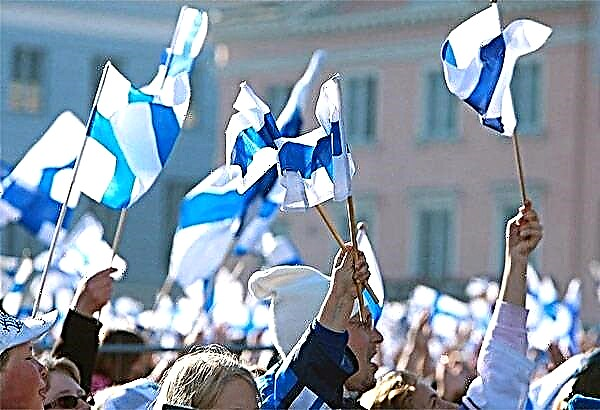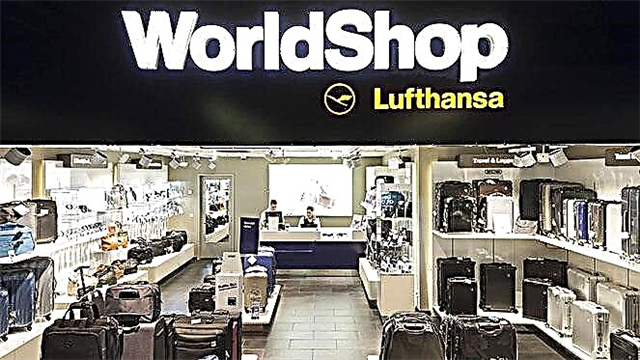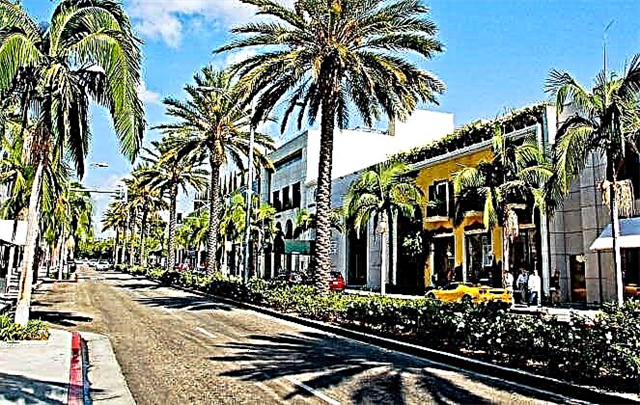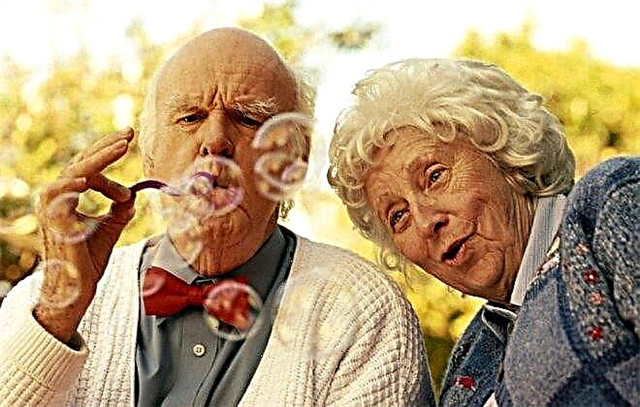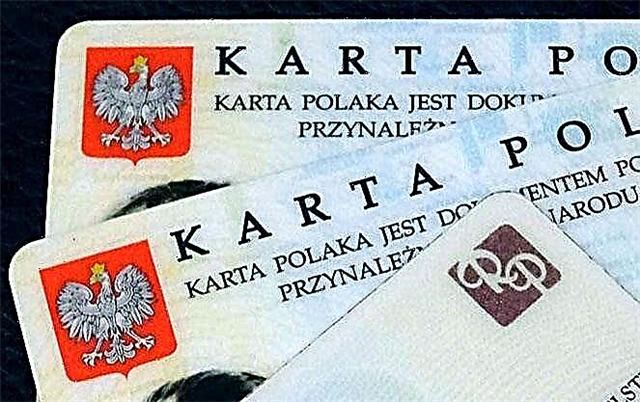Ethnicity checks are becoming more and more stringent, which is why the number of refusals to issue a Pole Card is growing every year. And if the preparation of documents can be entrusted to intermediaries, then the interview and questions on the Pole's Card require personal effort. They prepare for interviews all night long, study Polish textbooks, study with tutors and attend special courses.
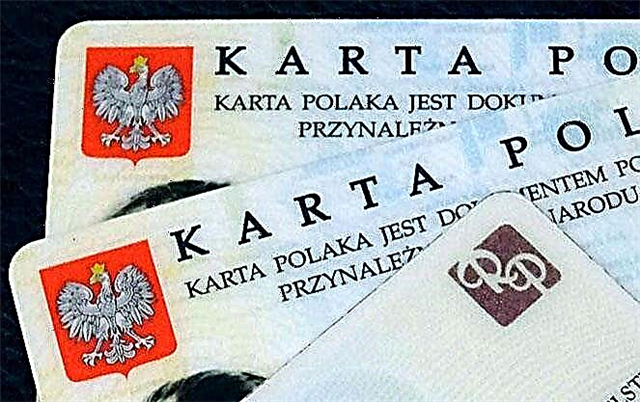
Where is the interview
In accordance with paragraph 2 of Art. 12 of the Pole Card Law (Ustawa o Karcie Polaka), the competent authority for issuing the card is the Polish consul at the applicant's place of residence, if he is outside Poland, or the voivode, if the card is issued while in Poland. Thus, the interview is carried out at the consulates of Poland abroad at the applicant's place of residence or at the provincial office.

You can find the contacts of your nearest consulate using the electronic service of the Ministry of Foreign Affairs of the Republic of Poland. By clicking on the link, you must select the country of your location (for example, the Russian Federation) and a suitable representative office. Information will appear on the screen with contacts and working hours of the requested representative office. For example, in Russia you can take an exam in Moscow, St. Petersburg, Kaliningrad and Irkutsk.
How to get to an interview
The easiest and most familiar way for most citizens is to make an appointment with the consul by phone:
- in Moscow - by phone (+7 495) 231-15-51;
- in St. Petersburg - by phone (+7 812) 336-31-40, 336-31-41 (registration is carried out every Monday from 11 to 13 o'clock);
- in Irkutsk - by phone (+7 3952) 288-010 (registration is carried out every Monday from 11 to 13 o'clock);
- in Kaliningrad - by phone (+ 7 4012) 976-440 (registration is carried out daily from 9 to 14 hours).
It should be borne in mind that the recording is carried out exclusively until the available quota is exhausted.
Please note that even by phone, a call to the consulate must be made in person (plus you can enroll your minor children).
This is due to the fact that a preliminary check of the applicant for knowledge of the Polish language is carried out already in the telephone conversation.
If it was not possible to get through to the Polish consulate, there is a second option - online registration.
How to book online
Submitting an electronic application will require communication with the Consulate staff within an hour from the date of application, so it will be possible to submit it only during business hours and only on weekdays. Submission of an application is not possible at any other time. In addition, if no communication with the consular staff occurs within an hour, the application will be canceled.
You can register for the Pole's Card using the electronic service of the Ministry of Foreign Affairs of Poland at this link. By clicking on it, you will be faced with the fact that the system will give you a refusal: "This function is not supported in the selected language version."
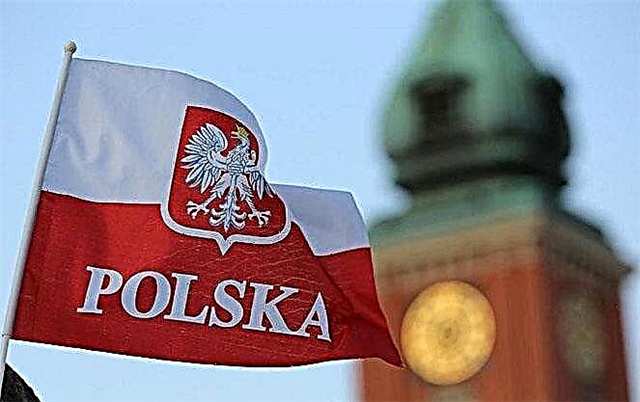
It will be enough to change the language system to “Polska” in the upper right corner, and the information will appear. In front of you you will see 4 points with brief advice on how to make an application. At the end, you will find a captcha with four characters. Enter them in the special field and click next, then follow the steps suggested by the system.
If, after the steps taken, the system displays "Brak terminów do dnia", this means that:
- a) quotas for the nearest dates have been exhausted;
- b) you are trying to apply outside of business hours;
- c) the system crashed.
In any case, if you were unable to submit your application electronically, you can always do it by phone, spending a little more time.
Interviewing with children
It is much easier for children to get a Pole's Card than for adults. To register it for minors, according to Art. 16 of the law, it is enough that at least one of the parents has such a card - in this case, consent to the issuance of the card from the second parent expressed personally to the consul is required. In this case, the presence of both parents is mandatory. Moreover, if the child has reached the age of 16, his consent to paperwork will also be required.
The presence of the child himself at the interview is not always necessary.
For example, the consular department in Moscow does not require such a presence only for children who have reached the age of 13. Some other consulates allow you to issue a card without a child until he reaches the age of 16. In any case, such information should be clarified with the specific Polish representative office.
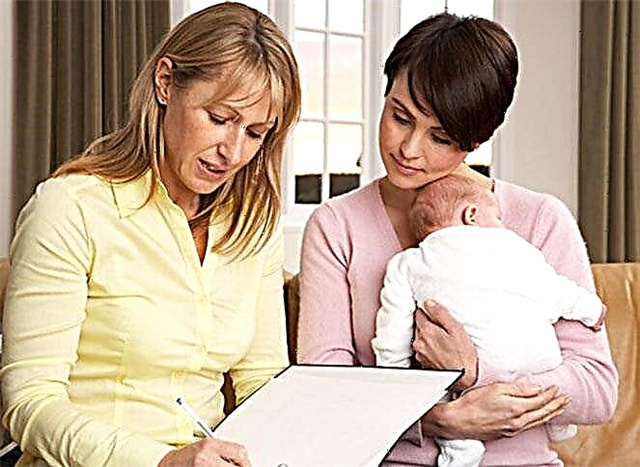
Note also that the way the conversation with the consul will go will also depend on the age of the child. Thus, children 13-15 years old will not need serious knowledge about Poland - it will be enough to demonstrate basic knowledge of the language. Deeper knowledge is expected from older children.
What language is the interview conducted in?
The only language in which an interview is possible is Polish. An attempt to communicate with the consul in Russian, Ukrainian, Belarusian and any other language will lead to an immediate refusal. The applicant is not expected to have academic knowledge - a basic level of knowledge of the Polish language and a demonstration of a desire to master it further will be sufficient.
The interview will not last longer than 7-10 minutes, but they will be enough to determine the level of proficiency in the language, especially the consul, for whom Polish is his mother tongue.
We strongly recommend that candidates thoroughly prepare for the interview: memorizing the answers to the questions that we will talk about next will not be enough.
You should be fluent in topics, understand the essence of the questions, and give detailed answers.
If your language knowledge and practice is not enough, we recommend that you start preparing now:
- hire a Polish language tutor: finding one in a large city is not a problem, and as an alternative, you can consider a remote tutor;
- attend language courses: today it is not a problem to find such courses in large cities, and for candidates from the provinces there are options for distance learning;
- use the services of a free tutorial;
- start reading Polish literature, listening to Polish songs, watching Polish TV, films and TV series.
Interview Topics
In accordance with Art. 2 of the law, the applicant's attitude to the Polish nationality is confirmed not only by the presence of basic knowledge of the Polish language, but also by the demonstration of knowledge of Polish traditions, customs, culture, history, and so on. This factor has a huge impact on the topic of the interview - it will not be limited to a conversation on abstract topics such as "what is the weather outside", "what did you eat for breakfast today" or "what color is the consul's jacket."
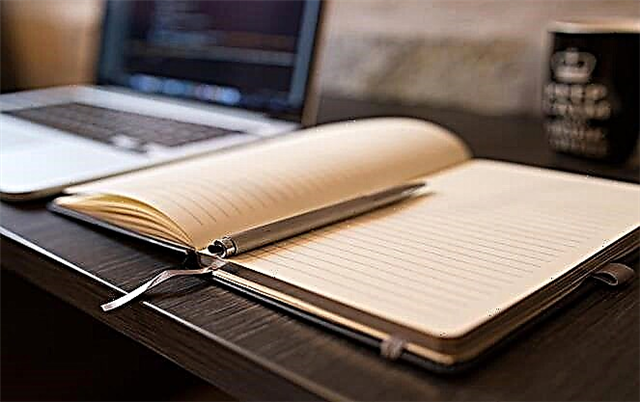
Questions that may be asked at the embassy will be of a slightly different nature. Having studied the practice of applicants who were able to successfully pass an interview in the Polish mission, we were able to highlight topics that can or will necessarily be covered by the consul, namely:
- A short story of the applicant about himself: short biography, place of residence, citizenship and, of course, nationality.
- Family, work: including a story about Polish relatives, the origin of which gives rise to the receipt of the Card of the Pole.
- History of Poland: about the most significant events from the moment of the emergence of the state to the present day.
- Culture: This includes both folk Polish traditions, holidays and customs, as well as questions about world famous cultural figures.
- State structure: national symbols, politics, politicians, administrative-territorial division.
The most popular questions and answers to them
You can only find out the list of specific questions that the consul will ask the consul by first agreeing with him - there is no specific standard for conducting an interview, approved by the legislation of Poland. Therefore, all that remains for candidates is to thoroughly prepare.
In order to simplify the preparation of candidates for the Pole's Card as much as possible, we have divided the most popular questions into categories depending on the topic. This does not mean that they will be given in the order in which they are given in our material.
As far as possible, a detailed answer has been prepared for each question. And for beginners, a translation into Russian is also presented, which should be used only for informational purposes - the answer must be known and given exclusively in Polish.
Conversation about the applicant
This is essentially the introductory part of the interview. It will not be possible to avoid it - the discussion of a brief biography of the applicant was encountered in one hundred percent of the cases we studied. The consul can not only ask questions, but also invite the applicant to tell his own brief biography.
Therefore, first prepare a short story about yourself in Polish: where and when you were born, where you grew up, studied, work, and so on. In parallel, be prepared to answer a number of such questions:
| Question | Translation | Answer | Translation |
|---|---|---|---|
| Jakie jest twoje imię? | What is your name? | Mam na imię (Andrey Ivanov) | My name is (Andrey Ivanov) |
| Skąd pochodzisz? Gdzie się urodziłeś? | Where are you from? Where were you born? | Urodziłem się i mieszkam w (Moskwie) | I was born and live in (Moscow) |
| Dlaczego myślisz, że jesteś Polakiem? | Why do you think you are Pole? | Moja rodzina zawsze szanowała polskie tradycje i polską kulturę. Mój ojciec opowiedział mi o swoim polskim pochodzenie. | My family has always respected Polish traditions and culture. My father told me about his Polish origins. |
| Obywatelem jakiego kraju jesteś Pan? | What country are you a citizen of? | Rosja / Ukraina / Białoruś | Russia · Ukraine · Belarus |
| Jak Pan będzie korzystał z Karta Polaka? | How do you plan to use the Pole's Card? | Chcę dostać pracę w Polsce i Karta Polaka da mi taką możliwość | I want to find a job in Poland and the Pole's Card will give me such an opportunity. |
| Czy masz wykształcenie wyższe? | Do you have a university degree? | Tak, ukończyłem uniwersytet w ___ roku. Jestem lekarzem. | Yes, I graduated from university in _____ year. I am a doctor. |
| Kim Pan jest z narodowość? | What is your nationality? | Polak (polka). | The only possible answer is Pole, Pole. |
A conversation about Polish relatives
A conversation about Polish relatives can go in the same vein. It obviously cannot be avoided either. Especially if such a relative is the basis of your Polish origin. Recall that it can only be an ancestor in a straight ascending line - father / mother, grandfather / grandmother, great-grandfather / great-grandmother.
The consul may offer to tell about relatives on his own, or he may limit himself to a few questions. In any case, the biography of your family should be studied in advance.
Here are the questions that the consul usually interests:
| Question | Translation | Answer | Translation |
|---|---|---|---|
| Czy Pan miał jakichś polskich krewnych? | Did you have any Polish relatives? | Mój ojciec, dziadek i pradziadek - Polacy. | My father, grandfather and great-grandfather are Poles. |
| Gdzie mieszkali krewni-Polacy Pana? | Where did your Polish relatives live? | Mój pradziadek urodził się w Warszawie, a następnie przeprowadził się do Rosji. | My great-grandfather was born in Warsaw and later moved to Russia. |
| Kto powiedział Panu o swoich polskich krewnych? | Who told you about your Polish relatives? | Mój ojciec opowiedział mi o moim pradziadku. I znalazłem dokumenty w archiwach w Warszawie | My father told me about my great-grandfather, and I found documents in the archives of Warsaw. |
Co krewni ci powiedzieli Panu o Polsce? | What did your relatives tell you about Poland? | Mój dziadek wspominał Polskę z wielką miłością. Zawsze chciał wrócić do Warszawy. Dziadek opowiedział mi wiele o kulturze i historii Polski. | My grandfather remembered Poland with great love. He always wanted to return to Warsaw. My grandfather told me a lot about the culture and history of Poland. |
| Jakim obywatelem był krewny Pana? | What country were your relatives citizens of? | Przed przeprowadzką do Rosji mój pradziadek i dziadek byli obywatelami Polski. | Before moving to Russia, my great-grandfather and grandfather were Polish citizens. |
In cases where the condition for issuing the card was not Polish origin, but active activity in the communal or diaspora organization of the applicant, we will accordingly talk about such activities. In such a conversation, an emphasis should be placed on active participation for the benefit of the development of the Polish language, traditions and customs in their country.
History of Poland
The history of Poland is one of the main reasons for pride for any Pole, so questions of a historical nature can hardly be avoided. Of course, the consul does not expect from you knowledge of the level of a graduate student of the Faculty of History at the University of Warsaw, but it is still worth knowing the main dates, historical events and major historical figures.
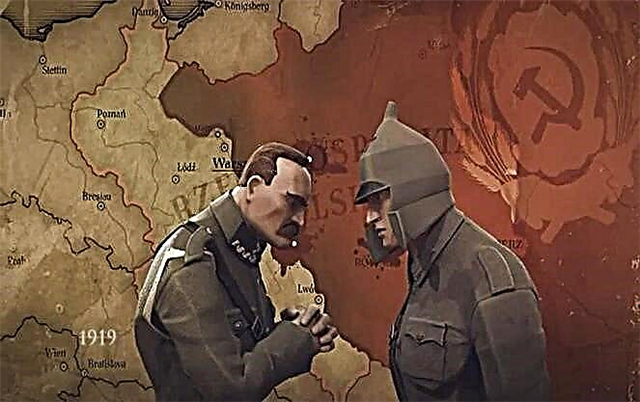
Questions about history can be asked in different forms and relate to completely different periods of the thousand-year history of the Polish Republic. Here are the 10 most frequently asked history questions.
| Question | Translation | Answer | Translation |
|---|---|---|---|
| W jakim wieku powstało państwo polskie, i wiek w którym był chrzest Polski? | The century of the formation of Poland and its baptism. | Państwo polskie powstało w X wieku i chrzest też w X wieku. Najczęściej podawaną datą jest 966 r. | Poland was formed and baptized in the 10th century - the most frequently dated date is 966. |
Jaki był pierwszy król Polski? | What was the name of the first king of Poland? | Nazywał się Bolesław Chrobri. Został koronowany w 1025 r. W Gnieźnie. | His name was Boleslav the Brave. He was crowned in 1025 in the city of Gniezno. |
| Kiedy Saeima przyjęła Konstytucję RP? | When did the Seimas adopt the Polish Constitution? | Polska Konstytucja została przyjęta 3 maja 1791 r | The Polish Constitution was adopted on May 3, 1791. |
| Kto taki Dąbrowskie? | Who is Dombrowski? | Jan Dąbrowski - polski generał, mąż stanu, twórca Legionów Polskich we Włoszech, naczelny dowódca wojsk polskich w 1813, senator, wojewoda Królestwa Polskiego w 1815, generał jazdy armii Królestwa 18 Polskie. | Jan Dombrowski - Polish general, statesman, founder of the Polish legions, since 1813 - commander-in-chief of the Polish army, general of the royal army. |
| Kiedy miał miejsce I, II, III rozbiór Polski? | When did all three partitions of Poland take place? | Trzy rozbiory Rzeczypospolitej w 1772, 1793 i 1795 r. | Three partitions of Poland took place in 1772, 1793 and 1795. |
| Czy Pan zna ostatniego króla Polski? | Who was the last king of Poland? | Ostatnim polskim monarchą był Stanisław August Poniatowski (1732-1798) | The last Polish monarch is Stanislaw August Poniatowski (1732-1798) |
| Pierwsza stolica Polski? | Which is the first capital of Poland? | Pierwsza stolica Polski - Gniezno. W tym mieście było wiele wydarzeń historycznych. W 1025r. odbyła się koronacja Bolesława Chrobrego. | The first capital of Poland is Gniezno. Many historical events are associated with it. For example, the coronation of the first Polish king Boleslav the Brave in 1025. |
| Kto jest patronem Polski? | Who is considered the Polish patron saint? | Święty Wojciech jest pierwszym polskim świętym uznanym przez Kościół katolicki, misjonarzem, męczennikiem. | St. Wojciech is the first Polish saint, a missionary recognized by the Catholic Church, and a martyr. |
| Jakie są najważniejsze średniowieczne budynki w największych miastach Polski? | What medieval buildings in the major cities of Poland do you know? | Wawel (Zamek Krolewski) w Krakowie, Sukiennice na Starym Miescie w Krakowie, Malbork (zamek Kszyrzacki). | Wawel (Royal Castle) in Krakow, Sukiennice at the Market in Krakow, Malbork (Kzychacki Castle). |
| Kim jest Jadwiga? | Who is Jadwiga? | Jadwiga jest królem Polski, najmłodszą córką Ludwika Vögierskiego i Elbiety Bosniak, katolickiego świętego, patrona Polski. | Jadwiga is a Polish king (exactly the king). Daughter of King Louis the Great of Hungary and Poland, patron saint of Poland. |
Polish Holidays
Polish holidays are another topic often raised by consuls in interviews, as they are part of Polish tradition. Here are the most popular holidays that can be discussed:
| Question | Translation | Answer | Translation |
|---|---|---|---|
| Podczas Święta Niepodległości Polski? | When is Poland Independence Day? | 11 listopada - polskie święto państwowe. | November 11 - Polish Independence Day. |
| Czym są Dzień Polonii i Polaków za Granicą? | What is the Day of Polonia and Poles Abroad? | Święto polskie, obchodzone 2 maja, w uznaniu wielowiekowego dorobku i wkładu Polonii i Polaków za granicą w zdobycie niepodległości Polski. | Polish holiday, celebrated on May 2 in honor of the recognition of the long-term achievements of Poles abroad in the cause of Poland's independence. |
| Dzień Flagi Polski | Polish flag day | 2 maja. | May 2 |
| Dzień Wszystkich Świętych | All Saints' Day | Dzień Wszystkich Świętych - 1 listopada. W święto wszystkich świętych Polacy odwiedzają cmentarze, aby udekorować groby swoich krewnych kwiatami i świecami. | Feast of All Saints - November 1. On this day, Poles visit cemeteries to decorate the graves of their relatives with candles and flowers. |
| Podczas Święto Wojska Polskiego? | When is Polish Army Day? | Święto Wojska Polskiego - 15 sierpnia na pamiątkę zwycięskiej Bitwy Warszawskiej w 1920, stoczonej w czasie wojny polsko-bolszewickiej. | Polish Army Day - August 15, timed to coincide with the victory in the Battle of Warsaw in 1920 during the Polish-Bolshevik War. |
| Czym są Wielki Piątek, Wielki Sobotę? | What are Good Friday and Great Saturday? | Wielki Piątek to dzień Wielkiego Tygodnia poświęcony śmierci Jezusa Chrystusa na krzyżu. Wielka Sobota jest przedostatnim dniem Wielkiego Tygodnia poprzedzającego Wielkanoc. | Good Friday is the day Jesus died on the cross. Holy Saturday is the last day of Holy Week, the day before Easter. |
Geography of Poland
The geography of Poland is not the most popular, but still a relevant topic for a conversation with the consul. Therefore, it is also worth preparing for general questions on geography. Here are some options:
| Question | Translation | Answer | Translation |
|---|---|---|---|
| Jaki powierzchnia ma Polska? | What is the area of Poland? | Powierzchnia lądowa Polski wynosi 312 679 km² | Poland's area is 312,679 km2 |
| Jakie góry przecinają Polskę? | Which mountains cross Poland? | Przez Polskę przecinają się Tatry i Karpaty | There are Tatras and Carpathians in Poland. |
| Podział administracyjny? | Administrative division of Poland | Polska podzielona jest na 16 wojewodów, 314 powiatów, 2479 gminy. | Poland is divided into 16 voivodships, 314 powets and 2,479 gminas. |
| Czy w Polsce jest jakieś morze? | Does Poland have a sea? | Tak, Polska leży nad brzegiem Morza Bałtyckiego? | Yes, Poland lies on the shores of the Baltic Sea. |
| Czy Pan zna główne miasta Polski? | Do you know the main Polish cities? | Warszawa, Krakow, Wroclaw, Szczecin, Gdansk, Lublin, | Warsaw, Krakow, Wroclaw, Szczecin, Gdansk, Lublin. |
Famous Poles
The consul may ask a question about famous Poles in the context of any discussed topic. However, for the convenience of candidates, we have categorized them.
| Question | Translation | Answer | Translation |
|---|---|---|---|
| Jaki pan zna znanych polskich naukowców? | What famous Polish scientists do you know? | Po pierwsze - to Mikołaj Kopernik - jeden z największych astronomow w historii, nie tylko Polski, ale i całego świata. Z wyjątkiem niego, Jan Heweliusz - astronom i konstruktor, Stefan Banach - matematyk. | First of all, this is Nicolaus Copernicus - one of the greatest astronomers in the history of not only Poland, but also the world. Besides him, this is Jan Hewliusz - an astronomer and designer, as well as mathematician Stefan Banach. |
| Jaki Pan zna znanych polskich kompozytorów? | What famous Polish composers do you know? | Fryderyk Franciszek Chopin, Karol Szymanowski, Witold Lutosławski. | Frederic Chopin, Karol Szymanowski, Witold Lutoslawski. |
| Jaki Pan zna znanych polskich pisarzy? | What famous Polish writers do you know? | Adam Mickiewicz, Mikołaj Rej, Jan Kochanowski, Witold Gombrowicz, Henryk Sienkiewicz | Adam Mitskevich, Nikolay Rey, Jan Kochanovsky, Witold Gombrowicz, Henrik Sienkiewicz |
| Kto z Polaków otrzymał Nagrodę Nobla? | Which Pole has received the Nobel Prize? | Słyszałem, że uczona Maria Skłodowska-Curie i pisarz Czesław Miłosz otrzymali Nagrodę Nobla. | I heard that the Nobel Prize was awarded to the scientist Maria Skłodowska-Curie and the writer Czeslaw Milosz. |
| Czy znasz znanych polskich polityków i mężów stanu? | Do you know famous Polish politicians and statesmen? | Tak, oczywiście: Jan Paweł II, Zbigniew Brzeziński, Tadeusz Mazowiecki, Richard Kuklinsky, Lech i Jarosław Kaczyński. | Yes, of course: John Paul II, Zbigniew Brzezinski, Tadeusz Mazowiecki, Richard Kuklinsky, Lech and Jaroslav Kaczynski. |
Polish customs and traditions
Polish traditions are one of the favorite topics of consuls for communicating with candidates. Knowledge of the topic most of all demonstrates the ethnicity of the applicant to the Polish people. The consul can ask the following questions:
| Question | Translation | Answer | Translation |
|---|---|---|---|
| Co robi Pan w Wielką Sobotę? | What do you do on Holy Saturday? | Wraz z całą rodziną modlimy się, kolorujemy jajka i konsekrujemy jedzenie. | With our family we pray, paint eggs, and bless food. |
| Jakie znasz narodowe potrawy? | What national dishes do you know? | Bigos, żurek, galantyna. | Bigos, zurek, galantine. |
| Po co w Wigilię wkładać dodatkową płyta na świąteczny stół? | Why do Poles put an extra plate on the festive table on Christmas Eve? | Dla niespodziewanego gościa. | For the unexpected guest (meaning the newborn Jesus). |
| Co to jest Dożynki? | What is Harvest Day? | Dożynki to festiwal folklorystyczny połączony z uroczystościami dziękczynnymi za ukończenie zbiorów i prace terenowe. | Harvest or Roasting Day is a traditional farmers' festival that marks the end of the harvest. |
| Co to jest Kolędy? | What are Christmas carols? | Kolędy to radosna piosenka noworoczna, w której dziś zwyczaj przyjmuje postać świątecznej piosenki. | Carols are joyful New Year and Christmas songs. |
National symbols
The national symbols of Poland should be known to anyone who considers himself to be the Polish people and the Polish nation. Rest assured, the consul will ask you at least one of the questions below.
| Question | Translation | Answer | Translation |
|---|---|---|---|
| Czy pan wie, jak wygląda polska flaga? | Do you know what the Polish flag looks like? | Zgodnie z prawem, kolory Rzeczypospolitej Polskiej są białe i czerwone, umieszczone w dwóch poziomych, równoległych pasach o tej samej szerokości, górnej białej i dolnej - czerwone | The law says that the state colors of Poland are white and red, and the flag itself is two horizontal identical stripes: red from below, white from above. |
| Co jest przedstawione na herbie Polski? | What is depicted on the coat of arms of Poland? | Orzeł ze złotą koroną na głowie na czerwonym płótnie. | Eagle with a gold crown on its head on a red background. |
| Czy Pan wie, czym jest Mazurka Dombrovsky? | Do you know what a Dombrowski Mazurka is? | Mazurek Dąbrowskiego - pieśń patriotyczna, która stała się hymnem dla całej Polski. | Mazurka Dбbrowski is a patriotic song that has become a Polish anthem. |
| Kto napisał polski hymn narodowy? | Who wrote the Polish anthem? | Jozef wybicki | Josef Wibicki |
| Jaki instrument gra hymn Polski? | What instrument is the Polish national anthem played on? | Na bębnie gra się polski hymn. | The Polish anthem is played on a drum. |
Conclusion
Of course, these are far from all the questions that a consul can think of, but only the main ones based on the generalized practice of candidates. This is the minimum, without knowing which it is better to postpone the interview and continue preparing. Given the volume of the material, we recommend that applicants for the Card of Pole prepare carefully for the exam. in the corridor of the consulate, you will probably meet people who came for an interview for the third or even fourth time. Therefore, if you nevertheless embarked on this path, approach the preparation issues in good faith. If you are wondering whether it is possible to apply for a residence permit using a Pole's card, read this article.


